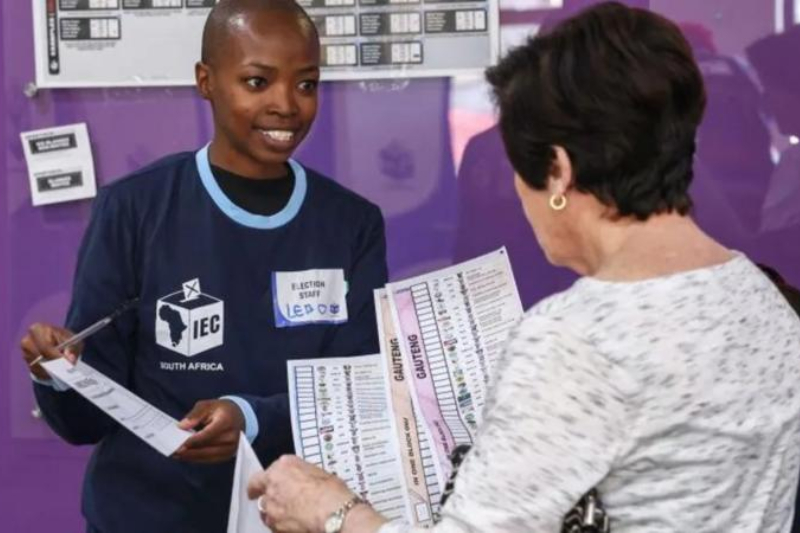In an election considered the most significant in 30 years for their nation, South Africans started voting Wednesday in schools, community centers, and in big white tents set up in open fields. It could land the fledgling democracy in uncharted territory. Together with his wife, Tshepo Motsepe, President Cyril Ramaphosa cast his vote in the Soweto Johannesburg township.
The three-decade dominance of the African National Congress (ANC) party—which guided South Africa out of the cruel white minority control of apartheid in 1994—is at issue. Now the target of a fresh generation of unhappiness in a nation of 62 million people—half of whom are said to be impoverished. With one of the greatest unemployment rates at 32%, Africa’s most developed economy reflects some of the most severe socioeconomic issues facing the planet.
Under the banner of a better life for all, the residual inequality—with poverty and joblessness disproportionately hitting the black majority—threatens to undermine the party that claimed to abolish it. Apartheid underlines this. After six consecutive national elections, some polls show the ANC’s support at less than 50% ahead of this one, an unheard-of decline. Though it is clearly predicted to have the most seats, it may lose its majority in Parliament for the first time.
ANC leader Ramaphosa has committed himself to “do better.” The ANC has appealed for more time and tolerance.
Keep Reading
Opposition DA Voting: DA Opposition Voting
The Democratic Alliance (DA) leader voted in Durban on Wednesday in South Africa’s election, regarded as the most significant in 30 years. The three-decade supremacy of the African National Congress party—which guided South Africa out of the cruel white minority control of apartheid in 1994—is under question. Now the target of a fresh generation of unhappiness in a nation of 62 million people—half of whom are said to be impoverished.
With one of the greatest unemployment rates at 32%, Africa’s most developed economy reflects some of the most severe socioeconomic issues facing the planet.
By undermining apartheid under the banner of a better life for all, the residual inequality—with poverty and joblessness disproportionately hitting the black majority—threatens to undermine the party that promised to remove it. John Steenhuisen, leader of one of the principal opposition parties, voted in Durban.
Though it is not considered as likely, the Democratic Alliance is part of an agreement with other smaller parties to combine their votes in an attempt to totally eliminate the ruling ANC.
On Wednesday, former South African President Jacob Zuma participated in an election deemed the most significant in 30 years and one that would expose their fledgling democracy to uncharted territory. Unhappy South Africans are gravitating into a variety of opposition groups; more than fifty will challenge the national election—many of them are fresh.
One is headed by Zuma, who has turned against his once-ANC friends. Although Zuma was kicked out of running for Parliament, his MK Party is still running wild cards.
Wednesday holds the three-decade rule of African National Congress party control under stake. It helped South Africa escape the cruel white minority control of apartheid in 1994, but today it is the focus of a fresh generation of unhappiness in a nation of 62 million people.
The ANC claims it is sure of keeping its majority, and given the party’s decades of government experience and unparalleled grassroots campaigning tools, observers have not ruled that out. It still enjoys great popularity, particularly among rural areas’ residents and elderly voters. Sunday is anticipated to produce the final findings.

